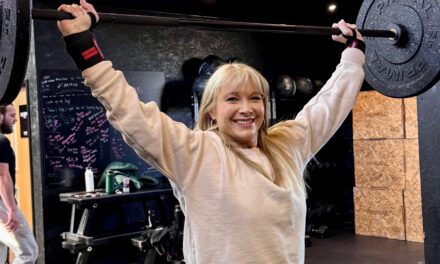Discover Your Path to Healing
Reframe Your Body Image Journey
From Renaissance paintings to Love Island reels, our idea of the “perfect body” has always been shifting. But underneath those shifts lies something deeper: the way our brains are wired for survival, comparison, and belonging. ➔ And today, social media has turned that wiring against us.
As a trauma-informed eating disorder therapist in Canterbury, I want to take you on a journey through how body image evolved, and why it leaves so many teens and adults stuck in shame, restriction, or cycles of binging.
The Social Media Mirror
How Digital Platforms Shape Our Self-Perception
The New Face of Body Image Pressure
From Packs to Perfection, How Our Brains Were Wired
Mammals, including humans, survived through trust and belonging. For 250 million years, we thrived in small groups where safety came from knowing others had our back.
-
Confidence was built through connection, not comparison.
-
We developed empowerment by protecting others, being cared for, and belonging.
But when that sense of tribe disappears, our brains default to something else: social ranking. Comparing, competing, and pushing others (or ourselves) down.
When “Health” Looked Bigger
Throughout history, what counted as aspirational has constantly changed:
-
Renaissance art celebrated fuller bodies ➔ a sign of wealth and resilience.
-
Post-war rationing made a curvier size 12–14 desirable ➔ it meant you had food security.
-
The 1980s praised fitness and muscle.
-
The 1990s glamorised heroin chic.
-
Today ➔ the pressure is fragmented, but mostly hyper-filtered and algorithm-driven.
Every generation has had its “ideal,” but in each, those outside the ideal were left feeling less than.
The Journey to Recovery
Enter Social Media – Comparison at Scale
Before Instagram and TikTok, comparison was limited to your village, your class, or your local community. Now:
-
Teens compare themselves not just to friends, but to the most “perfected” people out of billions.
-
AI editing and filters make ideals literally unattainable.
-
Algorithms profit from our insecurity, because the more inadequate you feel, the more likely you are to buy.
This is not accidental ➔ it’s design.
Reflecting on Personal Values
The Cost of “Underweight but Healthy”
I’m often asked: “Can you be underweight and healthy?”
The truth? No. When the body dips below a healthy BMI range, it’s not just fat being lost ➔ it’s muscle mass, organs, and bone density.
That’s why I see 20-year-olds with early osteoporosis. Numbers on a scale don’t tell the whole story, but they do tell us when the body is being starved of what it needs to function.
Body image struggles don’t heal by saying “just ignore social media” or “love yourself more.”
They heal through:
-
Safe relationships ➔ rebuilding trust in others and yourself.
-
Therapeutic support ➔ learning to separate shame from sadness, anger, and needs.
-
Resilience tools ➔ so when diet culture whispers “not enough,” you’ve got stronger voices inside.
In therapy, I often describe recovery as “slow-drip learning.” Each conversation rewires the brain a little, showing that feelings can be shared, held, and survived.
Embracing Inner Strength
Explore New Perspectives
Transform Your Healing Journey
The real question isn’t “How do I look compared to them?” but ➔ “What do I value? How do I want to live?”
Most of my clients don’t want to be remembered for abs or thigh gaps. They want to be remembered for their laughter, compassion, and resilience. That’s where real self-esteem comes from.
Book a free 20-minute consultation
Begin your journey to recovery today. Whether you’re ready to start therapy, want to learn more about our support services, or wish to book a free consultation, we’re here to help you every step of the way.
Meet Becky Stone
I’m Becky Stone, a qualified eating disorder therapist based in Canterbury. I specialise in trauma-informed, neurodivergent-affirming therapy for teens and adults struggling with anorexia, bulimia, binge eating, ARFID, and body image issues. My approach is warm, real, and rooted in compassion.
Stay Connected with Weekly Insights
Join our community and receive weekly insights on recovery and self-worth directly to your inbox. Our newsletter offers honest, trauma-informed advice to help you feel empowered and supported in your journey. Sign up today for uplifting content that inspires positive change.







